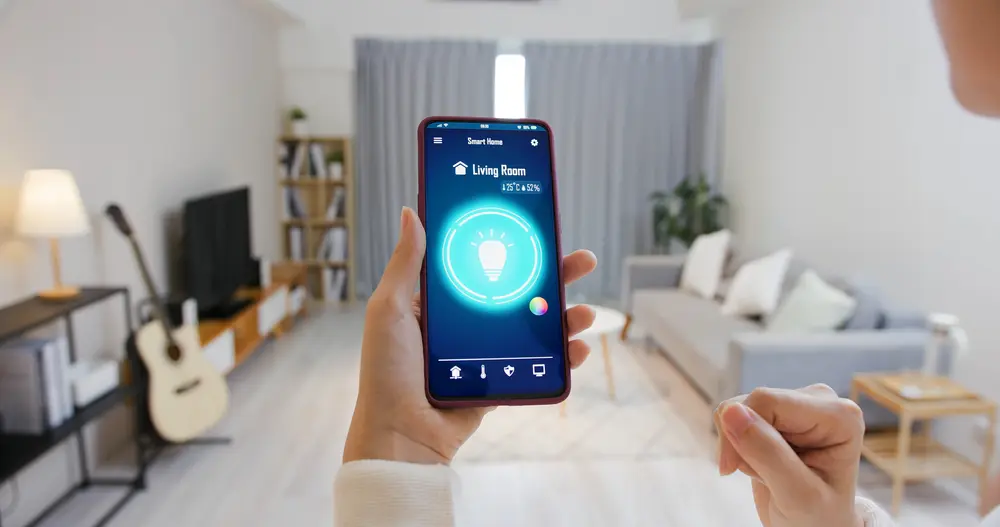
Future of Smart Home Technology: What Lies Ahead?
In recent years, the Future of Smart Home Technology has become a popular topic among tech enthusiasts and homeowners alike. As technology continues to evolve, so does the potential for creating smarter, more efficient homes. In this article, we will explore the exciting possibilities that lie ahead in the world of smart home technology.

The Rise of Smart Home Devices
Smart home devices have become increasingly popular as more people look to automate their homes. From smart thermostats to voice-activated assistants, these devices are designed to make life more convenient and efficient. As technology advances, we can expect to see even more innovative devices entering the market.
Integration of Artificial Intelligence
One of the key drivers of the future of smart home technology is the integration of artificial intelligence (AI). AI-powered devices can learn from user behavior and make adjustments to improve efficiency and convenience. This means that your smart home could become even smarter over time, adapting to your needs and preferences.
Enhanced Home Security
Security is a top priority for homeowners, and smart home technology is helping to address this concern. With the integration of AI and advanced sensors, smart home security systems are becoming more sophisticated. From facial recognition to motion detection, these systems can provide homeowners with peace of mind.
Energy Efficiency and Sustainability
As the world becomes more conscious of environmental issues, the demand for energy-efficient and sustainable smart home solutions is growing. Smart thermostats, lighting systems, and appliances are designed to reduce energy consumption, helping homeowners save money while also reducing their carbon footprint.
Smart Lighting Systems
Smart lighting systems allow homeowners to control their lights remotely, adjust brightness levels, and even change colors. These systems can be programmed to turn off when no one is in the room, further reducing energy consumption.
Smart Appliances
From refrigerators to washing machines, smart appliances are designed to make life easier and more efficient. These appliances can be controlled remotely and can even send alerts when maintenance is needed.
The Importance of Interconnectivity
For smart home technology to reach its full potential, interconnectivity between devices is essential. This means that all devices in a smart home should be able to communicate with each other seamlessly. As technology advances, we can expect to see more standardized protocols that facilitate this interconnectivity.
Role of IoT in Smart Homes
The Internet of Things (IoT) is a crucial component of smart home technology. IoT enables devices to connect to the internet and communicate with each other. This connectivity allows for more efficient automation and control of various home systems.
Challenges and Considerations
While the future of smart home technology is promising, there are challenges and considerations that need to be addressed. Security and privacy are major concerns, as more devices connected to the internet can increase the risk of cyberattacks. Additionally, the cost of smart home devices can be a barrier for some homeowners.
Ensuring Security and Privacy
As smart home technology continues to evolve, it’s essential to prioritize security and privacy. Homeowners should take steps to secure their networks and devices to protect against potential threats. To learn more about securing smart home networks, visit this guide.
Cost of Smart Home Devices
While smart home technology offers many benefits, the cost of devices can be a concern for some homeowners. However, as technology advances and becomes more mainstream, prices are expected to decrease, making smart home technology more accessible to a wider audience.
Conclusion
The Future of Smart Home Technology is bright, with endless possibilities for innovation and improvement. As technology continues to advance, we can expect to see even more exciting developments in the world of smart homes. Whether it’s through enhanced security, energy efficiency, or interconnectivity, smart home technology has the potential to transform the way we live.

FAQs
What is the role of AI in smart homes?
AI plays a crucial role in smart homes by learning from user behavior and making adjustments to improve efficiency and convenience. It allows smart home devices to adapt to user preferences over time.
How can I ensure the security of my smart home?
To ensure the security of your smart home, it’s important to secure your network and devices, use strong passwords, and keep software up to date. Learn more about securing smart home networks here.
Are smart home devices expensive?
While some smart home devices can be costly, prices are expected to decrease as technology becomes more mainstream. This will make smart home technology more accessible to a wider audience.
For additional information on the advantages of smart home technology, you can visit this external resource.
This article contains affiliate links. We may earn a commission at no extra cost to you.